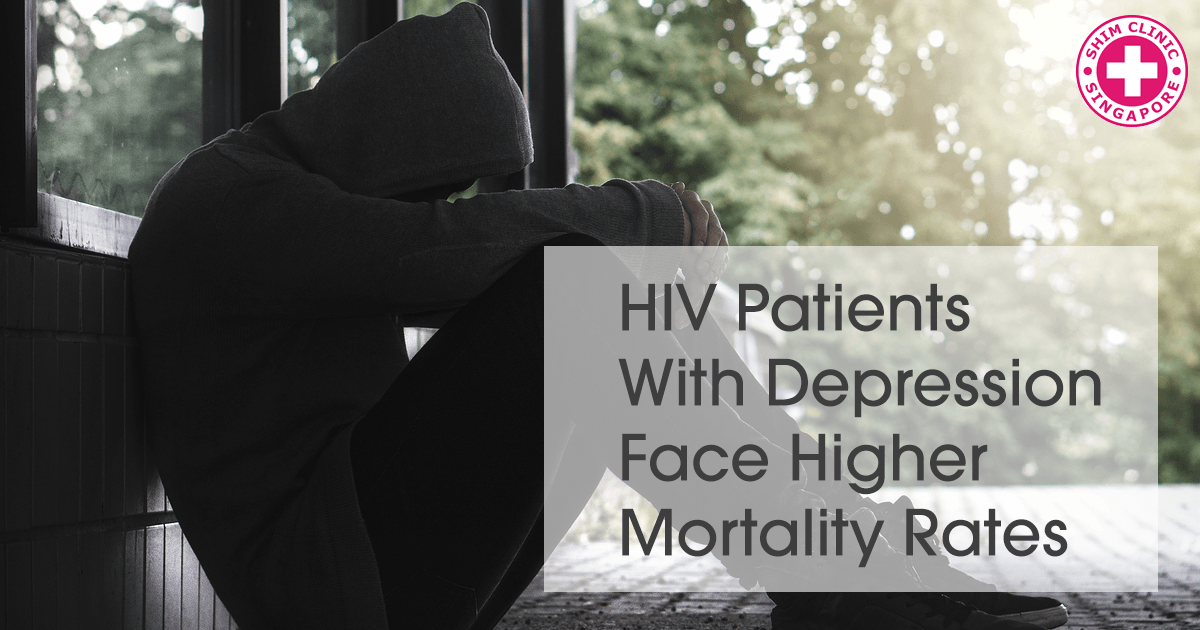When you are battling a disease, you naturally need all the help you can get but most importantly is the will to get better. The mind is a powerful tool; it can condition us to either get on the path to recovery or get worse. A study in 2016 released by the JAMA network found that adults with HIV and major depression disorder had a risk of heart attacks HIV-infected adults without major depression disorder. Another study has also been done on those who have been infected with HIV and depression at the same time?
HIV and Depression
A study of records from about 6000 HIV patients receiving primary care all over the United States, found appalling results. The 5,927 patients, 5,000 of whom were men, were receiving care at 6 medical centers across the U.S. These 6 were participating in the Center for AIDS Research Network for Integrated Clinical Systems (CNICS). The median age was 44 years.
Each patient was followed for 1-6 years between September 2005 and August 2015. Every person participating in the study was screened twice or more for depression at intervals of less than a year.
Half the patients were found to be depressed during 14% of their time in the study. 32% faced no depression, while 3.6% suffered from depression during the entire follow up period.
The more patients suffered from depression the higher their risk of missing appointments for primary care, of the virus no longer being suppressed, and of death from any cause was.
Every 25% rise in days with depression corresponded to an 8% increase in the number of appointments missed, a 5% rise in the possibility of having a detectable viral load and while the increase in the mortality risk was at 19%.
Patients under 100% depression faced a 37% higher risk of skipping appointments and 23% risk of treatment failing to work.
What do these statistics mean?
The researchers wrote that these results imply that depression, even when it’s short-term and mild, can have a significant negative impact on treatment and survival.
Judith D. Auerbach, of the Center for AIDS prevention Studies/ Division of Prevention Sciences in University of California, suggested that this research brings to light, key issues as far as the fight against HIV is concerned.
Caring for these people goes beyond providing drugs for them. It is not only a physical fight, but a psychological one as well.
Pence, associate professor at the University of North Carolina, stated that a huge difference can be made if a patient’s exposure to depression were to be shortened. This would be by picking it up early and treating it using evidence based protocols.
It is vital to regularly get checked for depression, quarter to semi-annually if possible. This is because depression is like carbon monoxide; it may not be detected until the damage is already done. Better ways to add mental health care into chronic disease care must be developed.
With 1.1 million people in the U.S estimated to be living with HIV in 2015, about 20-40% also have depression. This has adverse effects on the efforts to conquer the virus and survive.
It is very important to get screened for depression in order to manage your mental health and boost your overall capacity to fight and live.
Talk To Your Local Health Professional
In Singapore, it is important to visit your local STD clinic for frequent HIV testing (approximately every 3 months) and other STD tests if you engage in frequent casual sex with various partners. The thought of possible exposure to HIV can be very psychologically taxing, so it is very important to know that it is possible to prevent infection from taking hold with HIV PEP within 72 hours of infection.
Source: JAMA Network Home

